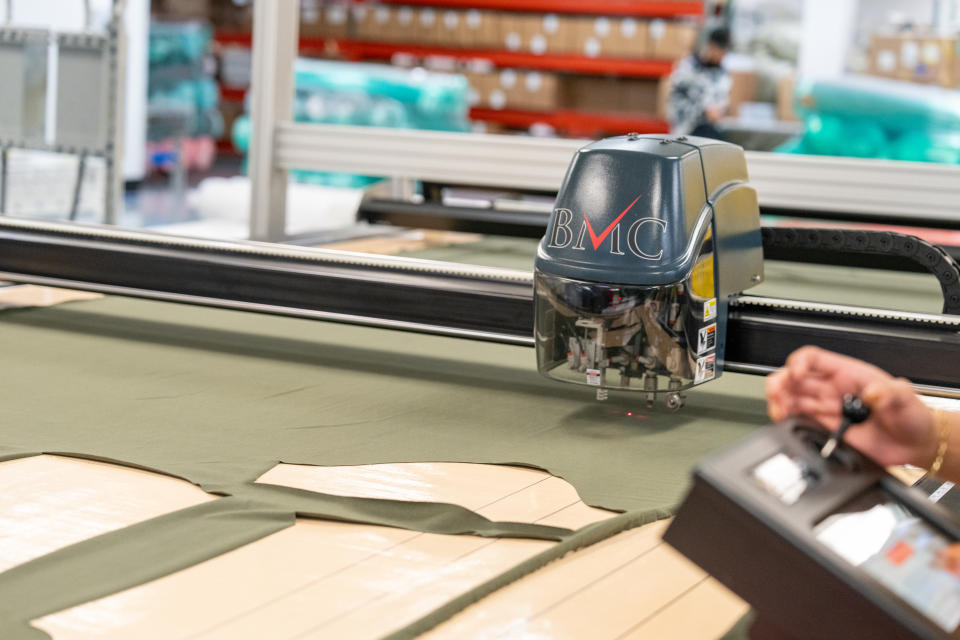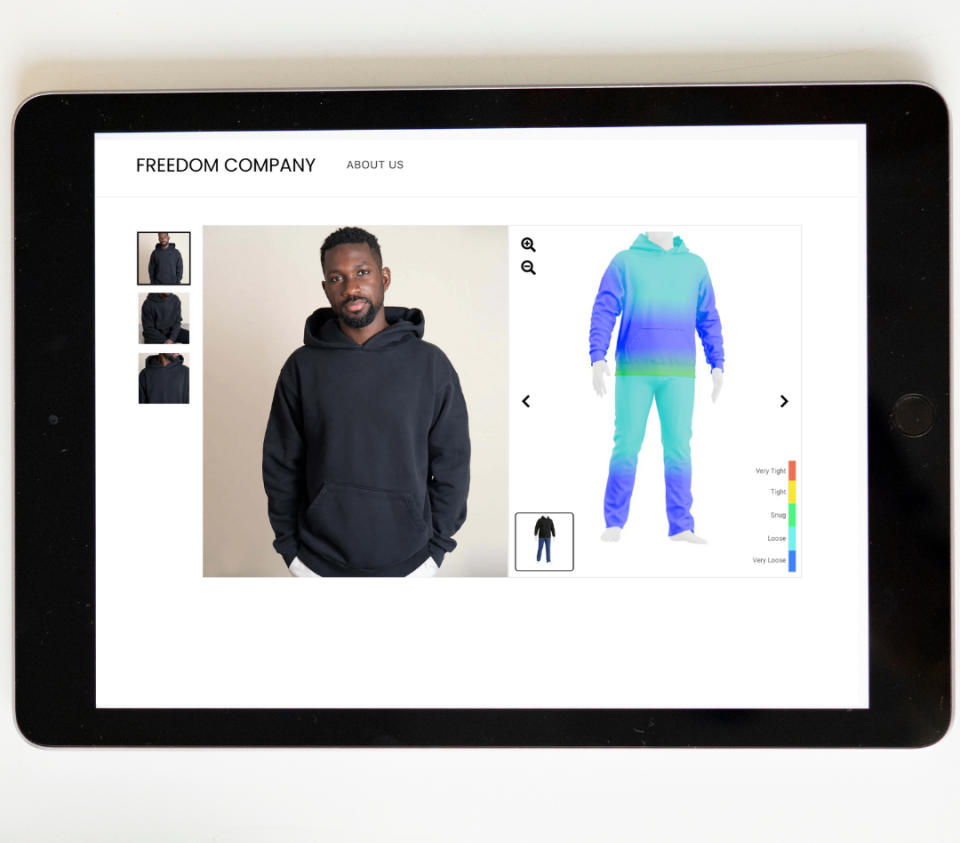Nashville Company Launches Made-to-Order, AI-Enabled Clothing Line

A Nashville-based clothing company has aspirations to become the next American heritage brand.
Freedom Company, a made-to-order apparel purveyor, launched its first collection Thursday, focused on elevated basics. The brand partnered with domestic manufacturer Bespoke Manufacturing Company (BMC) in Phoenix, Arizona; each time a consumer places an order, BMC works to fulfill it.
More from Sourcing Journal
Amazon Debuts Gen AI Shopping Assistant 'Rufus,' Nets $10 Billion Profit in Q4
1888 Mills Set to Shut Last Domestic Terry Manufacturing Plant
Though Freedom Company just launched, its onshoring play mirrors a greater trend in fashion and apparel. New data from Carl Marks Advisors shows that, in 2024, 48 percent of mid-sized fashion and apparel retailers have plans to up their onshoring strategies.
Danny Pippin, chief operating officer of Couture Technologies, said while manufacturing garments in the U.S. costs more than offshoring would, doing so ensures that the company can rest assured that its supply chain won’t be disrupted by shipping and cargo issues.
“I [have been] hearing everyone talk about so many issues with supply chain, and basically, from what I understand, it’s been a nightmare trying to get product…and I was like, ‘Let’s keep it local, in the U.S.,’” Pippin told Sourcing Journal.

All the materials Freedom Company uses for its garments and packaging come exclusively from the U.S., Pippin said—from cotton, to shipping boxes and more.
He noted that despite the higher cost to produce, the garments still provide Freedom Company solid margins. But, more importantly for him and Deanna Meador, Couture Technologies’ CEO and co-founder, producing in the U.S. allows them to ensure workers receive livable wages and enables them to oversee working conditions firsthand.
While other players have emerged in the made-to-order garment space as concerns over sustainability and excess inventory run rampant, consumers often wait longer for the garments than they would have if they purchased from a retailer carrying inventory. Onshoring provides another key benefit to the business, Meador said.
“We can go from an order placed on a website, to product in hand [with] the customer in three to five days, depending on where they live, which is awesome for us,” she explained.
The collection features neutral-colored staples like T-shirts and sweatshirts, as well as a hoodie dress.
Supply chain disruptions aren’t the only issue the new kids on the block want to solve preemptively. The entrepreneurial duo also has tricks up its sleeve to minimize returns. That’s because the team at Couture Technologies, which specializes in technology that helps with fit, oversees Freedom Company.
The apparel brand uses the technology provider’s marquis software, called VisualizeX, to help consumers determine how products will fit them. The AI-powered, virtual try-on technology creates a digital avatar of a consumer’s body based on pictures from a smartphones or self-input measurements.
Unlike other fit-tech solutions, Meador said VisualizeX doesn’t recommend a size to consumers; instead, consumers can decide how they’d like a garment to fit based on the information provided to them.
“One of the things that you’ll see with our technology is that we don’t tell you what size you should buy,” Meador said. “We’ve felt really strongly that it’s all about the customer’s preference and how they want to wear something, and that they have to choose that for themselves.”
VisualizeX shows a consumer where on their body a garment has the potential to be tight or loose, based on how the user’s body compares with the garment measurements. The patent-pending technology, called FitMap, gives users a visual, heat-map style image to represent garment fit prior to purchasing.

Pippin said the technology helps consumers come as close to the fitting room experience as they can without having to head to a store.
“In the fitting room, you go in and you can put it on. You’re like, ‘OK, I see how it looks.’ That’s great. But I can also tell how it fits, and then I can see how it feels,” he told Sourcing Journal. “We’ve tried to address all of those [aspects] with this technology…It’s not just an overlay; we’re not using generative AI to wrap the [digital avatar].”
Pippin said, at the moment, Freedom Company won’t be getting into wholesale, though that could come at some point. While the garments won’t yet be available to other brands or retailers, Couture Technologies’ software already is.
The startup already has several partners, like Workwear Outfitters, Hemp & Hope and Dapper Boi. Meador said Couture Technologies, which also offers 3D product visualization and apparel presentation technology, built its platform with the capacity to scale for larger, enterprise-sized clients.
And new technology could soon be coming down the pipeline for Freedom Company.
“We really want to be nimble, and we want to introduce new technology,” Meador noted. “One of the features that’s not live, but we have in a test site, is the ability to share your avatar. So, if I want to shop for my bestie, I can pull up her avatar and say, ‘Oh this is how something’s going to look and fit,’ and then buy something for her. We are thinking about personalization and experience, but also, how do you have this shared experience when you’re online, and really make it feel fun?”

